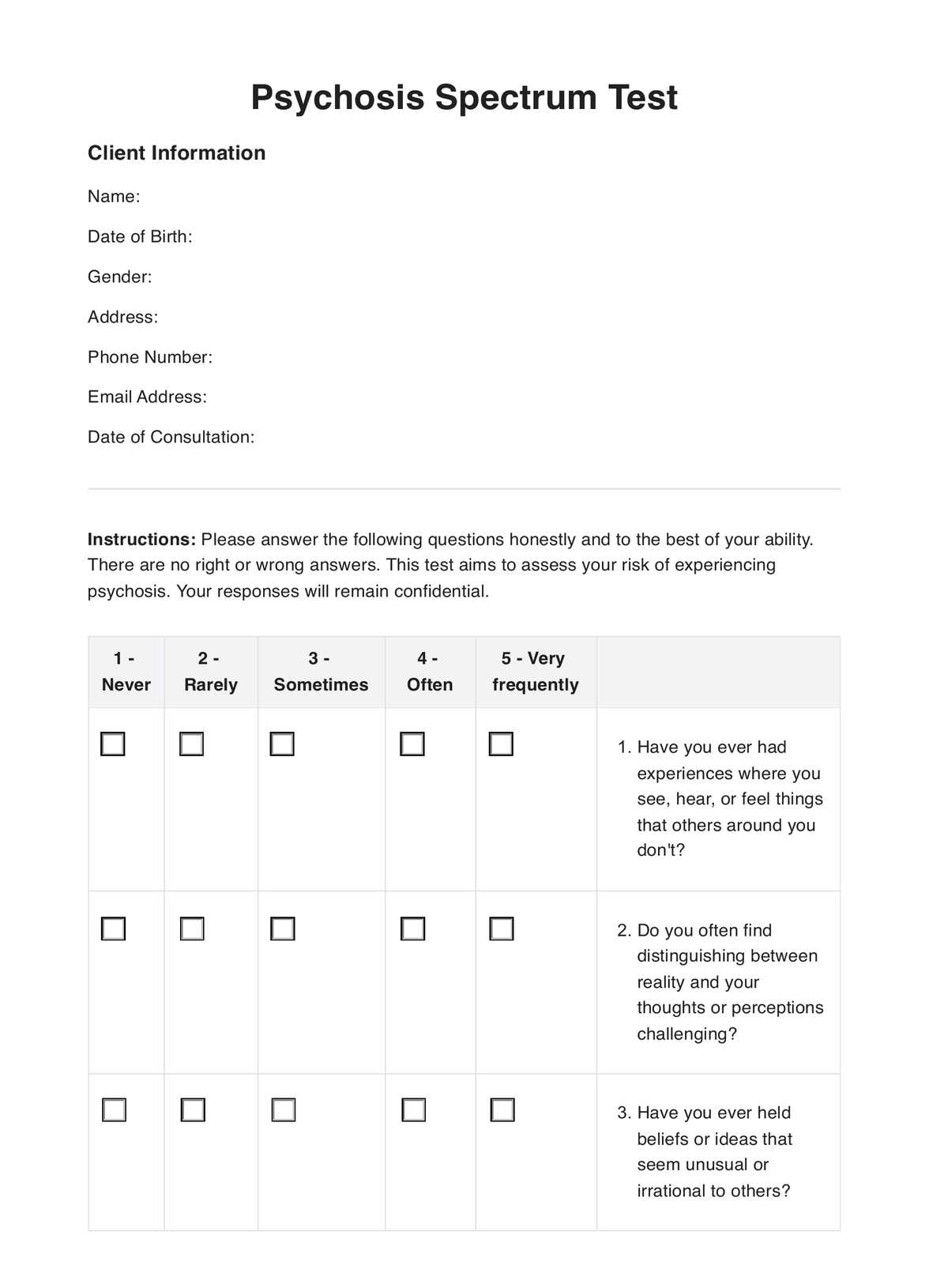No, the Psychosis Spectrum Test is not a diagnostic tool. It indicates potential risk factors for psychosis and helps determine the need for further evaluation by a healthcare professional.

Psychosis Spectrum Test
Discover if you are at risk of psychosis with the Psychosis Spectrum Test. Assess symptoms, gain insights, and find support. Take the test now!
Psychosis Spectrum Test Template
Commonly asked questions
If your results suggest a high risk, seeking immediate help from a qualified healthcare professional is essential. They can provide a comprehensive evaluation, offer appropriate interventions, and connect you with necessary support services.
The Psychosis Spectrum Test can be used as a starting point to assess your risk at a particular point in time. However, it is not designed for continuous monitoring. Regular check-ins with a healthcare professional are recommended for ongoing evaluation.
EHR and practice management software
Get started for free
*No credit card required
Free
$0/usd
Unlimited clients
Telehealth
1GB of storage
Client portal text
Automated billing and online payments











